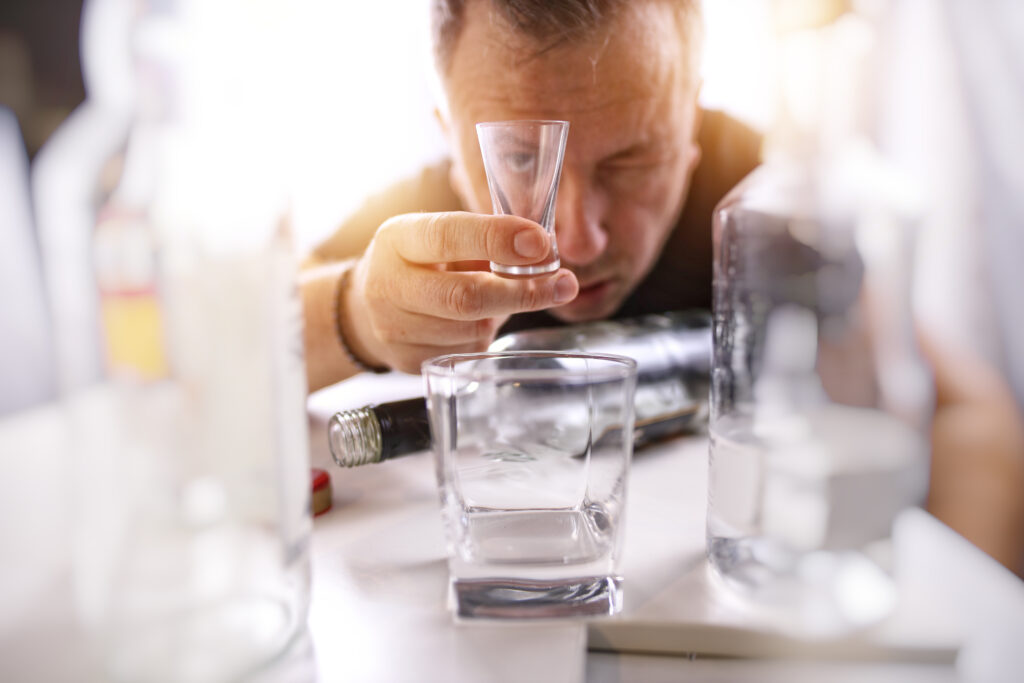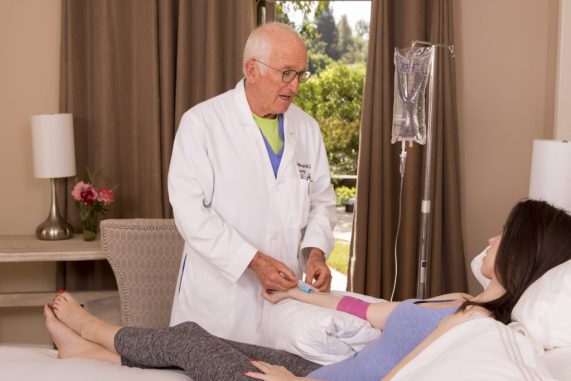Novo Detox is a treatment center with a detox and inpatient rehab facility that The Joint Commission fully accredits, the California Department of Health Care Services, and the Substance Abuse and Mental Health Services Administration (SAMHSA).
We are the best detox and rehab center for addiction for Sacramento, California residents because we have a full staff of caring and empathetic, dedicated experts available to our patients 24 hours a day, 365 days a year. Our drug and alcohol detox and rehabilitation programs have a high recovery rating, with our patients avoiding the ping-pong effect.
Our Gallery
Why patients choose detox & rehab programs at Novo?
Focus on safety & comfort
24/7 supervised detox
Top Rated facility
Effective treatment
Healthy meals
Quick admissions
Evidence-based Therapy
Great locations Nationwide
Top Rated Alcohol Detox Program in Sacramento
If you’re concerned that you or a loved one depend on alcohol, you must get help immediately. Depending on how long and how heavily you’ve been drinking, you may need help detoxing from alcohol to ensure that the process is as safe and comfortable as possible. The good news is that you don’t have to go through alcohol detox alone, and you can recover from alcohol dependence even if you’ve been drinking heavily for a long time.
When you’re looking for rehab to help you safely detox, you want one that’s been accredited by the Joint Commission, the California Department of Health Care Services, and SAMHSA (Substance Abuse and Mental Health Services Administration) to ensure that your care is held to the highest standards.
It’s also important to find one that will maintain your personal dignity and comfort as you go through detox and rehab and one that operates under 24/7 medical supervision. Health issues can flare up as you reduce your alcohol dependence, and it’s key to have clinical staff available to address them if they do appear.

What Is Alcohol Detox Like?
For many people with alcohol use disorder, detox is the first step in treatment. While you’re detoxing, your brain and body are ridding themselves of the alcohol and other toxins. If you’ve been drinking for some time, it’s understandable to be nervous about going through withdrawal.
During your drinking, your brain becomes more dependent on liquor for some of its functions. When you stop drinking, your brain needs to adjust back to its normal settings, and that’s what causes the symptoms of withdrawal. If you’re addicted to alcohol, quitting cold turkey is usually a bad idea. Your brain and body are so used to it that the withdrawal symptoms can be very severe if you try to stop drinking all at once. A medical detox can help relieve some of the worst symptoms and allow you to focus on your sobriety.
Trying to quit alone can be dangerous, especially for heavy drinkers. Some of the severe symptoms may lead to death, and during detox, these issues can suddenly go from mild to dangerous in a matter of minutes. It can also be so painful that you give up and return to the drink to avoid dealing with them.
What to Expect During Detox?
Withdrawal symptoms can appear just a couple of hours after your last drink, depending on how long and heavily you’ve been alcohol dependent. The symptoms aren’t so bad in the beginning, but they tend to get worse the longer you go without a drink. Days one and two can be the most painful, especially if you’re not receiving medication management or trying to quit without help. After that, in the first week, you may find that symptoms come and go and that their severity can change quickly too.
Generally, the worst of it will be over after the first week. During the next week or so they’ll start tapering off, and the ones that you experience are usually somewhat mild. Some former drinkers may end up with post-acute withdrawal syndrome, known as PAWS. These symptoms may last for weeks or months, but you can also get support to treat them.
How Long Is Detox?
Depending on your drinking history, underlying conditions, and other factors, you may spend one to two weeks in detox. Typically one week is enough to expel enough alcohol in your organs and tissues that you can start thinking more clearly and be ready for a rehab program to learn (or relearn) how to manage life without liquor.
Some drinkers who weren’t dependent on alcohol for very long or didn’t drink as much may find that their withdrawal symptoms subside in just a few days, and heavier drinkers may need a little over a week to make sure that they’re ready for the next stage of treatment for alcohol addiction.
Symptoms of Alcohol Detox
Unfortunately, if you were a heavy drinker for several years, you’re likely facing more severe symptoms during your detox. That’s why it’s even more urgent for you to ensure that you’ll be medically taken care of 24/7 while you go through the process.
In contrast, if you weren’t that heavy a drinker or you haven’t been alcohol dependent for very long, your symptoms will probably be mild to moderate. Of course, even the more severe issues can be treated with a medically assisted detox, so you’re not in as much pain as if you tried to go cold turkey.
Mild to moderate alcohol withdrawal symptoms
These may not be pleasant to go through, but they’re not usually life-threatening:
- Sweating
- Headaches
- Insomnia
You might have a hard time getting to sleep, or you may not be able to stay asleep once you’ve fallen asleep. Or you may experience a combination of both:
- Nausea
- Anxiety
Many people with alcohol use disorder drink to try to manage problems like anxiety and depression. But since alcohol is a depressant, it makes the issue worse. After you stop drinking you might be worried about how you’ll live life sober or have some other concerns.
Severe alcohol withdrawal symptoms
These are the ones that a medically supervised detox can help prevent or reduce because they’re most likely to lead to serious complications, including death if they’re not managed correctly:
- Seizures
- Tremors
Shaking often starts in the hands and then spreads to the rest of the body:
- Disorientation
You may not know where you are, what time (or day) it is, or even who you are. You could believe that you’re a god, or conversely, people are trying to kill you or hurt you somehow.
- Hallucinations
In addition to visual hallucinations, where you see things that aren’t there, you may also hear things that aren’t there (auditory hallucinations).
- Delirium tremens
This is the most worrisome symptom because “DTs” can lead to death. Fortunately, the problem is rare, even for heavy drinkers. However, if you develop the DTs while you’re detoxing, you need medical professionals to ensure they don’t become life-threatening.
Acute Detox
There are different levels of care for people with alcohol use disorder: detox, inpatient rehab, outpatient rehab, and extended programs (such as sober living housing in Sacramento.) Each level of care also has different levels within it, and what you need along the care continuum depends on your unique circumstances. For detox, the two levels are acute and sub-acute.
The acute type of detox is usually reserved for heavy drinkers who are likely to experience more severe withdrawal symptoms. If acute detox is recommended, you need 24/7 medical supervision at an inpatient rehab center to manage any life-threatening symptoms that occur during your alcohol withdrawal. Since alcohol is a depressant, you could simply stop breathing, which is known as respiratory failure. The other severe symptoms such as seizures and DTs are more likely to occur, so you’re continuously monitored during acute detoxification.
Sub-Acute Detox
The second type of detox may still occur at an inpatient recovery center, but it can also be a partial hospitalization or other outpatient rehabs as well. Because your symptoms aren’t as severe, it’s not as critical to have 24/7 medical supervision.
However, it’s still a good idea to manage your detox medically. That way, you have a higher chance of relapse prevention, and you have support in case you need to talk to someone or get help with motivation to complete your detox and start living a sober lifestyle.
Why Choose Novo Detox for Alcohol Detox Near Me?
Novo Detox specializes in cutting-edge medical care and scientifically-backed treatments for anyone suffering from alcohol addiction. Our program is designed to treat the whole person holistically, not just remove alcohol dependence. We can quickly admit patients, even same-day, which can make the difference in a successful recovery journey.
While we focus on detox and inpatient rehab, we have other highly effective facilities in our network once you’re ready for outpatient rehab. That may include intensive outpatient programs and telehealth or virtual sessions if necessary. The treatment centers in our network are also accredited and provide high standards of care.
Many people with alcohol use disorder also deal with an underlying mental health condition such as bipolar disorder or PTSD, and we treat dual-diagnosis patients too. We assess where you are in terms of alcohol dependency and mental health when you come in, and after detox, you’ll have access to individual therapy and group sessions according to what you need.
We offer cognitive behavioral therapy (CBT) and dialectical behavioral therapy (DBT) so that you can learn to face your demons rather than self-medicate with alcohol. You’ll also have the opportunity to attend sessions to improve life skills, relapse prevention, anger management, and aftercare planning.
In addition to nutritional counseling and fresh, organic meals, we provide experiential therapies such as saltwater therapy, acupuncture, yoga, meditation, and reflexology. Our facility is small, so we can customize the therapies you need and develop a rehab program that’s right for you and leads to long-term recovery. While you may have suffered a loss in your sense of self while you were drinking, you deserve a chance to live a healthy life free of addiction to any substances, and we can help you start living that life.










